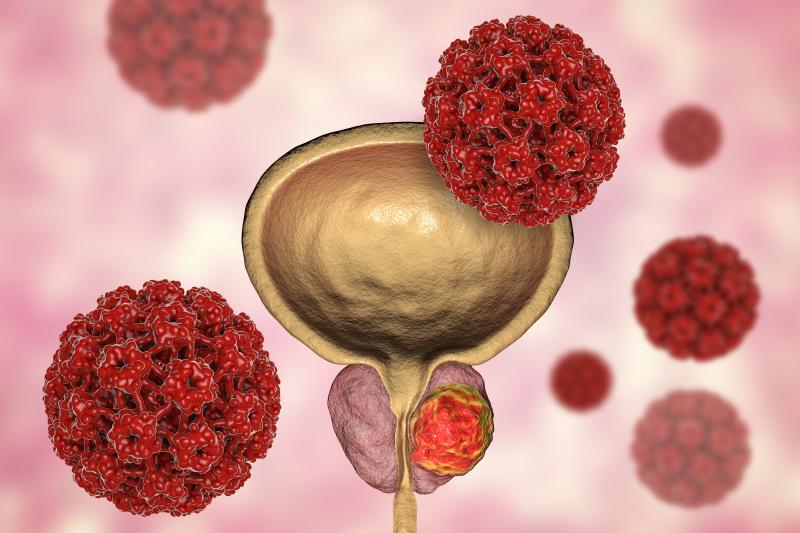
Cabozantinib plus androgen deprivation therapy (ADT) shows potent clinical activity in hormone-naïve metastatic prostate cancer (HNMPCa), according to the results of a phase II trial.
The trial included 62 patients who received ADT plus cabozantinib starting at 60 mg daily (median time from ADT initiation to cabozantinib initiation, 3.3 weeks), among which 46 had de novo metastatic disease and 54 had high-volume disease. Over a median follow-up of 31.2 months, 57 patients (92 percent) discontinued cabozantinib and 50 (81 percent) developed castrate-resistant progression. Common reasons for discontinuation included disease progression in 37 (65 percent) and toxicity in nine (16 percent).
The primary endpoint of castrate-resistant progression-free survival (PFS), assessed by radiographic criteria, clinical progression or receipt of additional therapy, was a median of 16.1 months (95 percent confidence interval, 14.6–22.7). Median overall survival was not reached.
Reductions in prostate specific antigen of ≥90 percent occurred in 50 of 60 patients (83 percent), bone-specific alkaline phosphatase of ≥50 percent were seen in 34 of 39 (87 percent), and urine N-telopeptides of ≥50 percent were recorded in 18 of 21 (86 percent).
Responses in bone scan were observed in 81 percent of 54 patients. Of the 30 patients with RECIST measurable disease (n=30), three (10 percent) achieved stable disease or best response, 18 (60 percent) achieved partial response, and nine (30 percent) achieved complete response.
Frequently reported grade 3 adverse events were hypertension (19 percent), diarrhoea (6 percent) and thromboembolic events (6 percent). Dose reductions occurred in 85 percent of the population.
On analysis of baseline cytokine and angiogenic factors (CAFs), shorter PFS was associated with higher plasma concentrations of Lumican, CXCL5, CD25 and CD30, as well as high tumour expression of pFGFR1.
The present data suggest that CAF profiles and tissue markers may be used as candidate prognostic and predictive markers of cabozantinib benefit in HNMPCa and hence guide rational therapy combinations, researchers said.